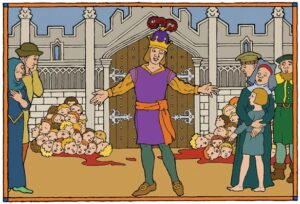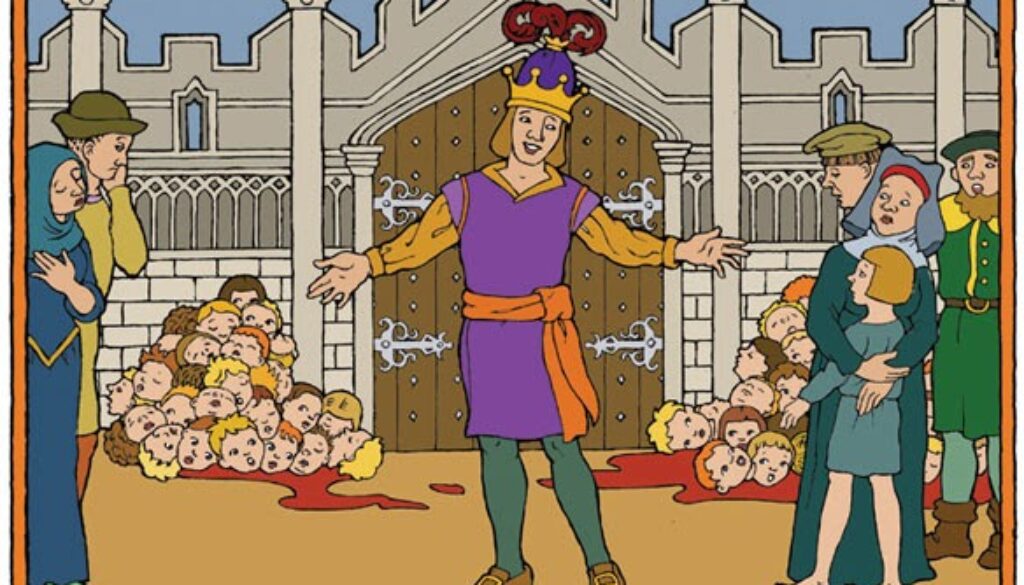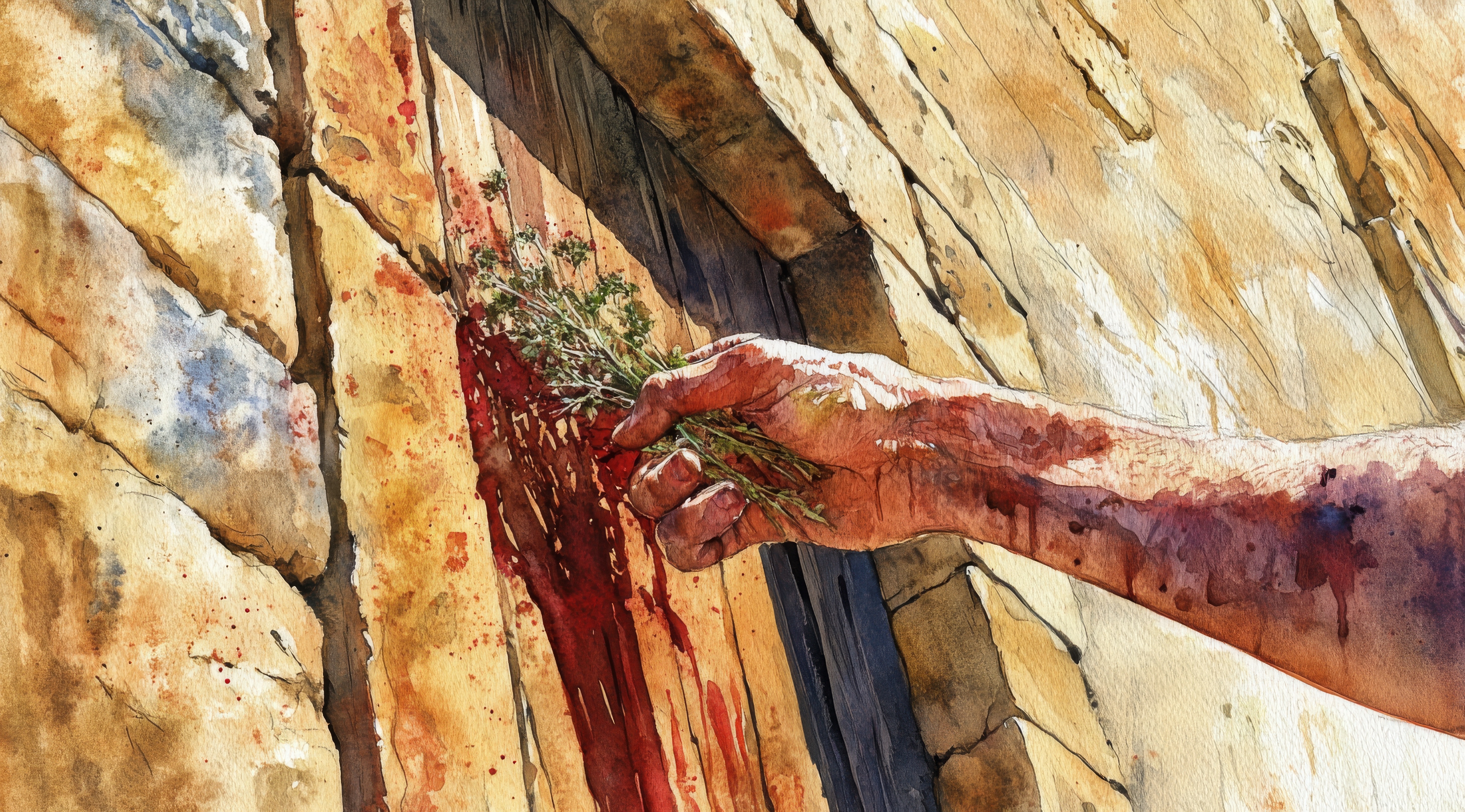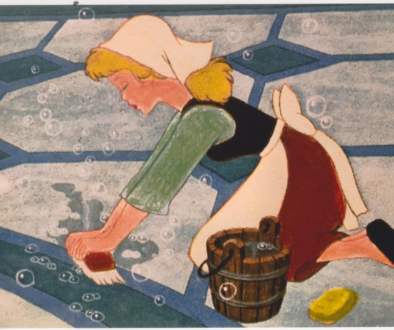2 Kings 10:1-17 Ahab’s Family

Both kings are dead. Jezebel is dead. Now it is time to turn to the last part of God’s judgment on Ahab. It’s time to wipe Ahab’s family from the earth.
I haven’t commented on this before with the destruction of Jeroboam’s family or Baasha’s family but this is hard to hear. The sins of the fathers condemned ALL their sons. Is it because of the proverb “Train up a child in the way he should go, and when he is old he will not depart from it” (Proverbs 22:6)? All these king’s children were trained up in idolatry, even the ones of Ahab who were still being brought up at the time. I wonder what their ages were. I have a feeling that some of these ‘sons’ were actually grandsons and maybe even great grandsons. We KNOW Jezebel wasn’t still having children and there is NO WAY she birthed 70 of them during her fertile years. Ahab no doubt had other wives besides Jezebel but none were as influential on him. Could these be their sons?
The children, grandchildren, in-laws, and friends paid for their connection to these kings. Were there none righteous among them? Did they all buy into the ‘doctrines’ espoused by their ‘fathers’? Surely they will be individually judged in the end.
Our story today is bloody. The original blood is not shed directly by Jehu but is laid at his feet. And he accepts it. He lets the people know that this blood was part of God’s prophecy. In keeping with the earlier parts of this story, let’s join in it again today. Sorry already for any difficult scenes that may occur.
♥ ♦ ♥
Jehu wakes with the sun. From the window in his room in the garrison he can see the palace. There is no king in residence. He knows the prophecy he was given but wonders about its timing. King David had to waited many years after he was told he would be king until he saw it fulfilled. Surely he is not greater than king David.
Israel needs a king. For now he needs to follow the line of succession. He also remembers there is more to the prophecy he was given. He is to be the hand that executes the Lord’s judgment on Ahab’s house. “How is the Lord going to work this out exactly” he thinks.
Jehu goes to morning meal with his captains. He is anxious to hear their thoughts on the matter. They were the ones to immediately take up the words of the prophet. Talk at the table initially focuses on the events of the previous day but Jehu is looking forward, not back. He presents the group with his concern.
“What is to be done with Ahab’s house?”
Bidkar raises his eyebrows in surprise. “The prophet said you are to be king. Surely that means an end to the house of Ahab.”
“I agree” chorused several other commanders.
“But the prophecy did not give me a date. Even king David had to wait on his prophecy to be fulfilled.”
“King David was but a boy when the seer Samuel spoke the words of the Lord over him. You are a man who is acquainted with leadership. Surely you see the difference.”
“This is true. I don’t want to presume too much and thereby step out of the will of the Lord. The people need a king now. Who is to say the Lord won’t install one of Ahab’s descendants before He has me take the throne.”
“Why not put it to a test then” offers Bidkar.
“And how do you propose I do that” asks Jehu.
“Offer it to Ahab’s sons and see what the Lord does from there.”
Jehu claps Bidkar on the back. “You are wise beyond your station my faithful servant. I shall do just that.”
Talk turned to other areas for the remainder of the meal. Jehu considered how he would carry out Bidkar’s suggestion while the others conversed about their day. As soon as the meal concluded Jehu went to the palace to set his plan in motion. He needed the royal parchment and scribes for his idea.
Jehu strode into the palace with purpose. The doorkeeper was dispatched immediately upon his arrival to gather the necessary personnel and equipment. The scribes almost beat him to the inner room where royal proclamations were penned. Once all were in attendance Jehu began to speak as he paced the room.
“Send letters to the rulers of the city of Samaria, the elders and to the guardians of the seventy sons of Ahab. This is what they are to say, ‘Now then, as soon as this letter comes to you, seeing your master’s sons are with you, and there are with you chariots and horses, fortified cities also, and weapons, select the best and fittest of your master’s sons and set him on his father’s throne and fight for your master’s house’ (verses 2-3).”
Jehu had chosen the words carefully. He had hidden meaning within them. His wording could call for the sons of Ahab to contend with one another for the throne or for the strongest to contend with him. His ‘flattery’ of the city’s resources also communicated that he knew of their strengths and weaknesses. As commander of Israel’s army he had resources at his disposal and his words subtly noted this.
Within the hour the scrolls were on their way. They would all be delivered before sunset, the beginning of the new day. Jehu expected to begin receiving replies as early as morning meal. He would be patient and wait until all the replies arrived, or challengers posted, before moving on.
The first of Jehu’s letters was delivered to the city manager. Word had reached the city of Samaria within hours of the death of both kings. Everyone knew of the acts of Jehu and the might he wielded. Jehu’s letter brought him NO comfort. It struck dread in him instead. He did not want his city to become a battlefield. He sent his messengers on the heels of Jehu’s men to call a meeting of all those who would receive the same letter. His message was for an assembly to convene at midday to discuss this matter.
The city manager was not the only one troubled by the letter he received. When those served with Jehu’s letters came together at midday the apprehension in the room was oppressive. If given the form of a man it would have rivaled the giants of old, Goliath at least.
The manager called the meeting to order. “Please take a seat. We need to address this NOW.”
It took a few minutes for the conversations to come to a halt and everyone to focus their attention on the city manager. When everyone was quiet he put forth the only issue on the agenda.
“What is to be done regarding Jehu’s letter? What do you make of it?”
The guardian of Ahab’s eldest son spoke up. “This is a challenge. He means to battle the man we put forth. The charge I have is the eldest but is not the wisest, nor the strongest. He would not survive in a confrontation with Jehu.”
“Should we chose the best of Ahab’s sons, regardless of age or position?”
“Behold, the two kings could not stand before him. How then can we stand?” (verse 4b).
“We can’t” replied the manager. “If I am correct, I believe that is the point of this message. We would go down in defeat regardless of who we selected. Ahab’s own sons would probably do us in if we were to try and choose from among them. The infighting would be intense.”
“Then what are we to do?”
“Our only recourse is to pledge allegiance to Jehu and do whatever he commands. We will not put forth any of Ahab’s sons.”
Agreement surged through the room. This was their only hope. A letter was quickly and carefully composed. It would arrive back at Jezreel before sundown.
Jehu was surprised to see a messenger being escorted to him as preparations were underway for evening meal. He hadn’t expected the first response until morning. Their haste in sending it was very telling. They were afraid. Jehu would hear their response in the same place he sent his original dispatch.
“Follow me” he ordered the soldier and messenger.
All three made their way to the palace. The doorkeeper was again assigned to gather the scribes and have them meet Jehu in the inner chamber. As soon as all were assembled an in place the messenger read the letter he carried.
“We are your servants, and we will do all that you tell us. We will not make anyone king. Do whatever is good in your eyes” (verse 5b).
Jehu sat and considered their words. The Lord had not called for another of Ahab’s sons to reign now. It was time to see if He had called for the death of Ahab’s house now. The only way to know this was to put it forth.
“Take this down and deliver it to the same men as before. ‘If you are on my side, and if you are ready to obey me, take the heads of you master’s sons and come to me at Jezreel tomorrow at this time” (verse 6b).”
Jehu left the scribes to their task and returned to the garrison. His message would be on its way as soon as it was copied enough times for each recipient. In the meantime he wanted to discuss the reply with his commanders. They needed to be ready in case there was a problem with his instructions.
“You told them to do what!?” one commander bellowed.
“They are to bring the heads of the sons of Ahab here to Jezreel by this time tomorrow” replied Jehu calmly.
“That is one way to test the timing of the Lord” volunteered Bidkar. “If they comply then you know the Lord has called for you to be the next king of Israel. If not,…” Bidkar shrugs his shoulders to indicate the uncertainty of the ‘if not’ he spoke.
“The fame of Jehu will force their compliance” offers another commander.
“Either way, we will have an answer by this time tomorrow” says Jehu. “I for one am looking forward to knowing the Lord’s timing. I am willing but only when He is ready. I await His direction.”
The letters did not leave Jezreel until first light. It was unwise to travel at night. They were in the hands of their intended recipients midmorning. By midday the ‘evidence of loyalty’ was resounding in the greatest homes in Samaria.
Within minutes of receipt, the letters were opened and swords unsheathed. The first screams were heard shortly after. Many of Ahab’s sons didn’t even have time to utter a sound as their throats were cut in one swift move by their protectors.
It wasn’t that the protectors had no compassion for their charges. They simply feared for their own lives and valued such above that of the sons of Ahab. Blood and tears ran in equal measure from the households of the seventy protectors.
The last of Ahab’s sons occurred within the same hour as the first. The next task was to transport their heads to Jezreel. Due to the timeline of the letter there was little time to purchase special baskets for this task so kitchen baskets or gardening baskets were conscripted into service. They would be replaced instead of returned to service.
Ahab’s sons, however they met their end, were laid across a stone and their heads severed from their bodies. The heads were carried by the hair and deposited into their respective baskets. Then all baskets were assembled at the home of the city manager. By the time all seventy heads were gathered flies had discovered the scent and were swarming the baskets. Two carts were brought to carry the baskets to Jezreel. It would require pushing the animal to its limits to get the cargo there in time of Jehu’s deadline.
Fresh animals were harnessed at Ibleam in order to keep up the exacting pace. The carts bearing the heads of all seventy sons of Ahab reached Jezreel just as the sun was touching the horizon. A watchman had been dispatched to alert Jehu when they were spotted making their way towards the gates.
“They have brought the heads of the king’s sons” (verse 8b).
Jehu was not surprised at his words being heeded without question. He knew that the Lord was in what he did and had directed his path.
“Lay them in two heaps at the entrance of the gate until the morning” (verse 8c).
The messenger rushed off to meet the carts and have Jehu’s orders carried out.
Heads were dumped without ceremony into two piles. Each contained 35 heads. Occasionally one would teeter and try and roll from the stack. To prevent touching them sticks was employed to push the heads that threatened to roll back onto their pile. It was a grotesque sight, both in building and in repose for the night.
Citizens of Jezreel tried to avoid the sight but curiosity drew many of them in spite of themselves. Guards were posted at the gate to ensure nothing happened in the night.
Morning dawned and Jehu went out to the gate. The trumpet sounded and all the people assembled right away. Jehu addressed the crowd. Indicating the two piles of heads he began to speak.
“You are innocent. It was I who conspired against my master and killed him, but who struck down all these? Know then that there shall fall to the earth nothing of the word of the Lord, which the Lord spoke concerning the house of Ahab, for the Lord has done what He said by His servant Elijah” (verses 9b-10).
Jehu dismissed the people and then took up arms. It was time to clean the city of Jezreel of the stink of Ahab. Those of Jezreel who were friends of Ahab, members of his family in some way, served as priests, or were any way connected with the house of Ahab would fall this day.
Screams filled the city as men and women fell by the sword. Ahab still had a great many friends and family in Jezreel. No one was willing to withhold or harbor any Jehu or his soldiers sought out.
As quickly as it began in Jezreel it ended. Bodies lay strewn about the most prominent homes. Neighbors were left to bury the dead as Jehu’s work was not yet complete. Samaria would suffer the same fate. The sons of Ahab were just the beginning.
Jehu assembled three companies for the task in Samaria. He would take no chances of the city refusing him the work of the Lord. As he and his troops were on their way they were met by a band of distinguished looking travelers at Beth-eked.
“Who are you?” (verse 13b) Jehu asked of them.
“We are relatives of Ahaiah, and we came down to visit the royal princes and the sons of the queen mother” (verse 13c) they replied.
“Take them alive” (verse 14a) ordered Jehu.
His men quickly subdued the group. They bound them and herded them like sheep to the edge of the pit of Beth-eked. Forty two persons lined the edge of the pit. They were dispatched as one and thrown into the pit. None were spared.
Jehu and his men continued on their march to Samaria when they encountered another traveler. Jehu recognized Jehonadab the son of Rechab immediately. This was a man who honored the Lord and whom Jehu looked up to as an example. Jehu would very much like to have him at his side. When they were near one another Jehu called out to him.
“Is your heart true to my heart as mine is to yours?” (verse 15b).
Jehonadab was surprised by Jehu’s greeting. He had heard of all that Jehu had been doing. He also knew, or at least expected, he knew the reason behind it. Jehu was God’s instrument of judgement against the house of Ahab.
“It is” (verse 15c) came Jehonadab’s immediate reply.
“If it is, give me your hand” (verse 15d) commanded Jehu.
Jehonadab didn’t hesitate for even a second. He reached up and took hold of Jehu’s outstretched hand and was pulled up into the chariot with him.
“Come with me, and see my zeal for the Lord” (verse 16a) said Jehu as they continued their journey to Samaria.
The streets of Samaria from the great houses to the lowest quarter could not conceal even one of those who belonged to the house of Ahab, his friends or his priests. All met with the sword fulfilling the word of the Lord which had been spoken by Elijah. Jehonadab watched the hand of the Lord as it moved through Jehu.
And still Jehu had work to do.
(to be continued)
♥ ♦ ♥
For ten righteous men God would have spared Sodom. But they were not found. I have no doubt He would have spared the righteous of Ahab’s house even then, but there were none to be found. The poison of Ahab and Jezebel filled their household. Their friends were of like mind. And the priests were certainly as idolatrous as he.
I don’t like mass murder or war but I will leave those things in God’s hands. Only He knows what would have become of our world without Him saying “This far and no more!”
Father God, I trust You in EVERY way. You know beginning from end and everything in between. You are the judge of my heart. You are the ONLY judge who can see into the hearts of man and judge rightly. Don’t let me try and take Your place in this. Help me be discerning and not fall into step with those who are not Yours but also don’t let me judge others by standards I create. Lead me in my associations and friendships. I NEVER want to be caught up in a ‘Ahab’s friend scenario.’




